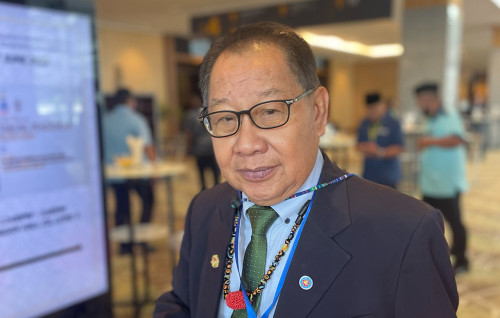KUALA LUMPUR – There are four brain chemicals known to contribute to one “feeling good”.
Dopamine helps with the feeling of joy when you do something pleasurable. Endorphins masks pain. Oxytocin, also known as the “cuddle hormone”, offers comfort and safety when bonding and in social alliances. Serotonin is produced when you feel respected – giving a boost in self-esteem and the security of social importance. It also helps regulate sleep, appetite and mood.
We live for meaning and purpose, for adventure and beauty, achieving a positive chemistry in the brain to feel good.
But today, we live with the social and psychological impact of Covid-19.
Women are reporting burnout as they try to cope with working from home while handling the majority of housework and childcare.
Young people are experiencing the highest stress levels in family relationships, and find it hardest to maintain friendships.
Reduced incomes. Lost jobs. Failed businesses. Loss of freedom and our usual stress relievers. All these factors are having serious consequences for our mental health.
While the majority of the population is adapting to such stress, at-risk groups who may have had symptoms in the past, and those now suffering from the said symptoms, should reach out to family, friends, educators, counsellors, work colleagues, clinicians and even policymakers, allowing them to assist.
In this month’s Breaking Down the Issues, we feature Dr Aida Adlan, a psychiatrist and lecturer at University Malaya Medical Centre; Kenny Lim, executive director of Befrienders; and, Dr Salina Abdul Aziz, the Health Ministry’s head of psychiatric services.
They share their views on the stigma surrounding mental health, reaching out for help, the importance of family support, and ways in which to utilise the government’s healthcare services.
Click the three videos below to access techniques on managing stress and find out how we can “unhook and ground” from Doing What Matters in Times of Stress: An Illustrated Guide by the World Health Organisation.
This project is brought to you by advocacy and research group Sekhar Institute together with the Good Capitalism Forum, which promotes social capitalism, and The Vibes.
The Vibeinar titled “Are Mental Health Problems Just Millennial Problems?”, moderated by The Vibes executive editor Manvir Victor, can be viewed here. – The Vibes, October 17, 2021




_-_SYEDA_IMRAN_-_26.jpg)

















